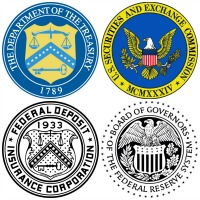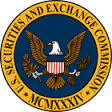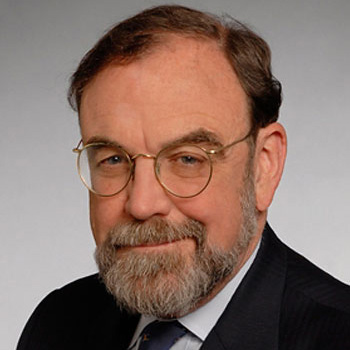The OCC has proposed a set of enforceable and specific risk governance guidelines to formalize its heightened expectations for large national banks and federal savings associations. The risk governance guidelines would set new, and much higher, minimum standards for the …
In this blog post, I trace why my co-author Rob Ricca and I have concluded that the landmark 1986 Revlon ruling is, today, an insipid and remedially insignificant doctrine. Its overly exalted place in M&A law endures because it is …
On December 5, 2013, the Board of Governors of the Federal Reserve System (“Board”) released Supervisory Letter SR 13-19, “Guidance on Managing Outsourcing Risk” (“Guidance”). The Guidance is the most recent publication in a series of supervisory and enforcement actions
…
The Securities & Exchange Commission (the “SEC”) proposed significant revisions to Regulation A on December 18, 2013, as mandated by Congress under Title IV of the Jumpstart Our Business Startups Act of 2012 (the “JOBS Act”). Revised Regulation A has …
The following comes to us from Prasad Krishnamurthy, Assistant Professor of Law, U.C. Berkeley Law School.
The prudential regulation of banks by the federal banking agencies has traditionally been grounded in discretionary standards. Recent calls for cost-benefit analysis of agency …
The new EU regulatory capital regime came into force on 1 January 2014 and with it a recasting of the securitisation risk retention rules. To accompany these new rules, the European Banking Authority (EBA) published final draft regulatory technical standards …
The following remarks were delivered by Commissioner Daniel M. Gallagher of the U.S. Securities and Exchange Commission in Washington D.C. on January 15, 2014.
Thank you, Sarah [Kelsey, Exchequer Club Secretary], for that introduction. I’m very pleased to be here …
The high profile long-running saga between Mark Cuban — entrepreneur, television personality, and billionaire owner of the Dallas Mavericks — and the SEC has finally ended with Mr. Cuban emerging victorious. On October 16, 2013, after less than four hours …
Like children on Christmas Eve, securities defense attorneys and corporate executives are waiting in hopeful anticipation for the Supreme Court’s coming decision in Halliburton Co. v. Erica P. John Fund, Inc. (“Halliburton II”), which may overrule the “fraud on the market” doctrine (“FOTM”) that was announced over a quarter century ago in Basic v. Levinson.[1] Academics are divided, with probably the majority fearing the loss of general deterrence if the securities class action is substantially undercut. Conversely, a minority (including this author) believe it is remarkable that FOTM has survived as long as it has because it is extraordinarily ill-suited to the real world of securities fraud (as hereafter explained). A third more nervous group of spectators are the managing partners of litigation-oriented law firms, who know that FOTM’s potential abolition would likely imply a steep decline in securities litigation, which is the staple of their practice. Ironically, some of the securities defense attorneys eagerly awaiting FOTM’s demise may next year be learning how to litigate patent cases. Be careful then what you wish for, as you may get it.
In the latest instance of proxy advisors establishing a governance standard without offering evidence that it will improve corporate governance or corporate performance, ISS has adopted a new policy position that appears designed to chill board efforts to protect against …
As we have described in our prior memos (here and here), in Halliburton Co. v. Erica P. John Fund, Inc., No. 13-317, the Supreme Court will decide whether or not to abandon the “fraud on the market” …
The following is the SEC’s press release on the Volcker Rule revision regarding CDOs backed primarily by trust preferred securities, originally available here. The interim final rule and accompanying release is available here.
Five federal agencies on Tuesday …
The following comes to us from Bradley Berman, Of Counsel, and Steven Bleiberg, associate, in the New York office of Morrison & Foerster LLP. It was originally published here by INSIGHTS.
Rule 144 under the Securities Act of …
The following comes to us from Peter Reilly, Associate Professor of Law, Texas A&M School of Law.
Wal-Mart is one of the wealthiest and most powerful companies in the world. And billionaire gambling magnate Sheldon Adelson is one of the …
The following is the SEC’s press release, originally published here. The proposed ’34 Act amendments are available here and the proposed ’40 Act amendments are available here.
The Securities and Exchange Commission [on December 27, 2013] announced that …
In the wake of the 2008 crisis, it soon became apparent that the fault lines of the global financial system extended far beyond the regulated banking sector to the less regulated “shadow banking” sector. Nonbank financial entities including (but not …
The following comes to us from Bernard S. Sharfman, Visiting Assistant Professor of Law at Case Western Reserve University School of Law.
When should courts participate in determining if a corporate decision maximizes shareholder wealth? That is the question at …
The following comes to us from Scotland M. Duncan, an attorney at Jones Day in Pittsburgh, PA.*
It is axiomatic that calculating the amount of loss within securities fraud cases is essential to criminal sentencing. Until about a year …
 Sky Blog
Sky Blog









